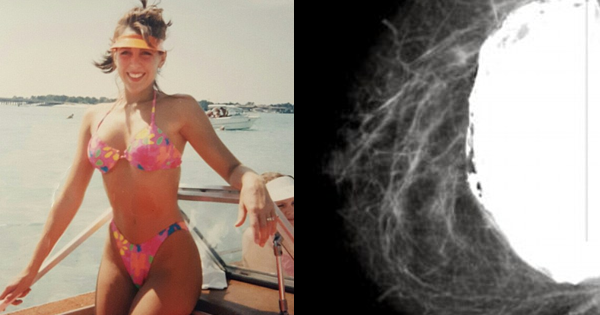Advertisement
Breast augmentation is in the mainstream these days, but that comes with its own set of risks.
Mother Anne Ziegenhorn has had breast implants since the 1990s. In 1998, she switched her implants from silicone implants to saline implants. That’s where her troubles began.

After six months, she began suffering symptoms, and had to get an MRI.
She thought saline implants would be better. Now she knows she was wrong. The shell of saline implants is still made of silicone.
“I had no clue what implants were made of,” she said. “Had I known, I never would have stuck them in my body.”
In 2001, her symptoms got worse. She began to gain weight—she put on 60 pounds in two years. She experienced short term memory loss, and continued pain in her breasts. She got sores all over her body, and she got more and more tired. Eventually, she couldn’t speak at all, and communicated only via text message.
“My breastfeeding caused my kids to be ill,” said Anne. “My son, at 19 months old, had a severe kidney infection. He almost died. “
At the time, doctors didn’t even think about the possibility that there might be mold in her implant. And though Anne complained of pain in her right breast for years, doctors thought nothing was wrong, since her mammograms were normal.
She went to see 23 doctors once her symptoms were so bad that she couldn’t talk. They all diagnosed her incorrectly—she received lupus, arthritis, and thyroid problem diagnoses, but none of the treatments for them made her feel any better.
“I felt like that was it, I was gonna die, and the doctors were gonna let me die,” she said.
But in September 2013, she noticed that one of her breasts was misshapen, and had begun to dip. She went for a mammogram, where doctors told her that they’d noticed a dip two years ago that they hadn’t told her about, and now her breast had ruptured.

Anne was furious.
So she did her own research. She googled “mold inside saline breast implant," a phenomenon she’d heard from a friend. She found a video by a patient of breast implant specialist Dr. Susan Kolb that detailed a situation exactly like hers. She immediately sent Dr. Kolb her mammograms.
Dr. Kolb sent back, “I have never seen mammograms like this before. You have mold and bacterial infection. You need to be on antibiotics.”

She did, and eventually had the implants removed. “Silicone sickness in and of itself is one entity. Then you add the mold to it that we had, and then you’ve got two illnesses going on,” says Anne.

Though Dr. Kolb isn’t against implants, she warns women to get theirs changed every eight to fifteen years. She says, “My experience in doing this for thirty years is that eventually everybody will become ill from their breast implants, unless they die sooner from something else.”




